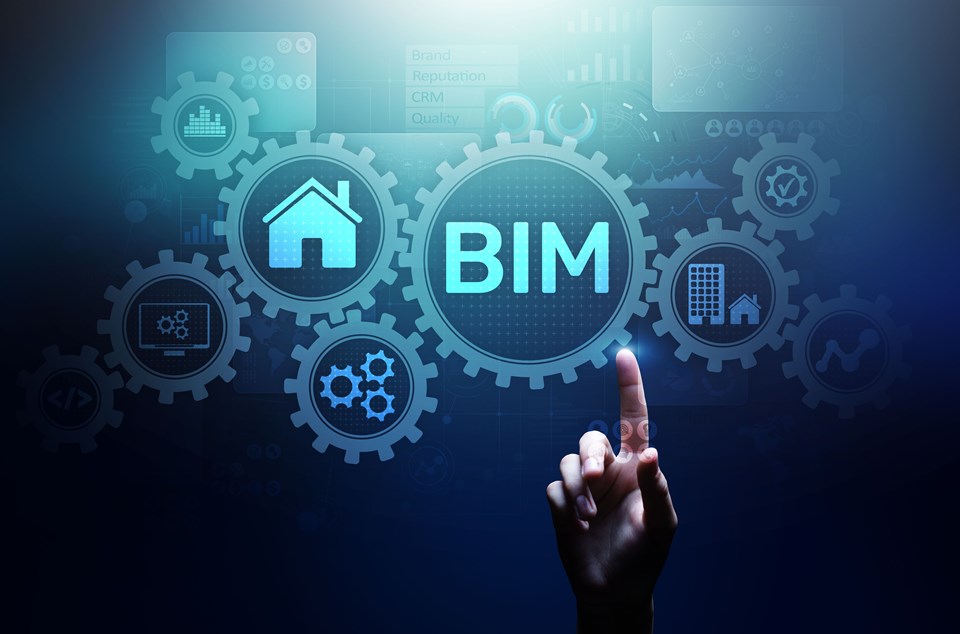
How Building Information Modelling (BIM) is Impacting Construction Management in Dubai?
Construction management is increasingly benefitting from the innovative and collaborative approach of Building Information Modelling (BIM) which has revolutionised the construction industry. By facilitating the creation and management of digital representations of the physical and functional characteristics of buildings and infrastructure throughout their life cycle, BIM has gained popularity in the UAE, particularly in Dubai.
Construction management courses in the UAE have been developed to provide individuals with the necessary knowledge and skills to manage construction projects effectively. These courses cover various topics such as project planning and control, cost estimation, quality management and risk management, among others. Pursuing a construction management diploma course in the UAE, especially Dubai will equip individuals with the knowledge of implementing BIM in construction management, leading to improved project outcomes.
The adoption of BIM in Dubai has been on the rise, with many construction companies using BIM software to enhance project delivery. The Dubai Municipality has mandated the use of BIM in all major construction projects, further highlighting the importance of BIM in the construction management industry. Before entering into the depth of the subject, let us understand BIM first.
Table of Contents
- Introduction
- What is Building Information Modelling in Construction Management?
- Applications of BIM in Construction Management
- Adoption and Implementation of BIM in Construction Management in Dubai
- Current BIM Standards and Regulations in Construction Management in Dubai
- Potential Future Developments & Advancements of BIM in Construction Management in Dubai
- Study Construction Management Courses in the UAE with GBS Dubai
- Frequently Asked Questions About the Construction Management Diploma Courses in Dubai
What is Building Information Modelling in Construction Management?
Building Information Modelling (BIM) is an innovative approach to construction project management that involves creating and managing digital representations of buildings and infrastructure. It is becoming increasingly popular in the construction industry because of its numerous benefits.
How Building Information Modelling (BIM) Works?
BIM software is used to create a digital representation of a building or infrastructure. This digital model contains information on the physical and functional characteristics of the building or infrastructure, including data on materials, components, systems and processes. The software allows the user to create a 3D model of the building or infrastructure, which can be used to simulate the construction process, identify potential problems and optimise the project schedule. These models also enable better visualisation and communication of project details to all stakeholders, improving the decision-making process.
Want to Explore BIM in Construction Management?
Applications of BIM in Construction Management
BIM has a wide range of applications in the construction industry, including:
- Design: BIM software allows architects and engineers to create detailed 3D models of buildings and infrastructure, which can be used to visualise and evaluate design options. This leads to better design decisions, reduced errors and improved project outcomes.
- Collaboration: BIM facilitates collaboration between project stakeholders, including architects, engineers, contractors and owners. The digital model can be accessed and updated by all stakeholders, leading to improved communication and collaboration.
- Project Management: BIM can be used to manage construction projects effectively by providing accurate data on project costs, schedules and materials. This enables project managers to make informed decisions and optimise project outcomes.
- Maintenance and Operations: BIM can be used to manage the maintenance and operations of buildings and infrastructure, by providing accurate data on the components, systems and processes involved. This leads to improved efficiency, reduced downtime and better performance.
Adoption and Implementation of BIM in Construction Management in Dubai

The Dubai Municipality has been a strong advocate of BIM and has mandated its use in all major construction projects. This has led to an increase in the adoption and implementation of BIM in Dubai's construction management industry. Many construction companies in Dubai have started using BIM software to enhance project delivery, reduce errors and improve project outcomes.
Benefits of Using BIM in Dubai's Construction Industry
Dubai is known for its innovative and ambitious construction projects. In this section, let us discuss the benefits of using BIM and the challenges that come with its implementation. BIM offers several benefits to the construction industry in Dubai, including:
- Improved Collaboration: BIM facilitates collaboration between project stakeholders, including architects, engineers, contractors and owners. The digital model can be accessed and updated by all stakeholders, leading to improved communication and collaboration.
- Reduced Errors and Reworking: BIM provides accurate data and visualisations of the construction project, leading to reduced errors and reworking.
- Improved Project Outcomes: BIM provides accurate data, improves decision-making and optimises project scheduling, leading to improved project outcomes.
- Increased Efficiency: BIM reduces project delays and improves the construction process, leading to increased efficiency.
- Better Performance: BIM provides accurate data on the components, systems and processes involved in the construction project, leading to better performance of the building or infrastructure.
Challenges of Using BIM in Construction Management in Dubai
Despite the numerous benefits of using BIM, there are also several challenges to its implementation in Dubai's construction industry, including:
- Cost: The initial cost of implementing BIM can be high, including the cost of training, software and hardware.
- Lack of Skilled Labour: There is a shortage of skilled labour in the construction industry who are proficient in BIM software, leading to a skills gap.
- Resistance to Change: The adoption and implementation of BIM require a change in the traditional methods of construction, which can be met with resistance from project stakeholders.
- Standardisation: The lack of standardisation in the use of BIM can lead to compatibility issues between software and data exchange.
Current BIM Standards and Regulations in Construction Management in Dubai
To facilitate the implementation of BIM, the municipality has developed the Dubai BIM Roadmap and Implementation Strategy, which outlines the BIM standards and regulations that must be followed. The Dubai BIM Roadmap and Implementation Strategy are based on well-regarded standards like the UK’s Level 2 or the international BIM standard ISO 19650.
The Dubai BIM Roadmap and Implementation Strategy include the following BIM standards and regulations:
- BIM Execution Plan (BEP): The BEP is a document that outlines the processes and procedures that must be followed during the implementation of BIM on a construction project. Its purpose is to establish a fundamental structure that guarantees the efficient implementation of cutting-edge design technologies on the BIM-enabled project. Instead of focusing solely on individual interests, the BEP aims to streamline work and model flow throughout the entire project.
- BIM Modelling Standards: The BIM Modelling Standards define the required level of detail (LOD) for each component of the building or infrastructure project.
- BIM Data Standards: The BIM Data Standards define the required data that must be included in the BIM model, including project information, design information and performance information.
- BIM Collaboration Standards: The BIM Collaboration Standards define the requirements for collaboration between project stakeholders and the sharing of BIM data.
- BIM Validation Standards: The BIM Validation Standards define the requirements for validating the accuracy and completeness of the BIM data.
The current BIM standards and regulations in Dubai have been put in place to regulate the use of BIM in construction management. These regulations have a significant impact on construction management.
BIM has revolutionised the construction industry in Dubai and the use of BIM is expected to continue to grow and evolve. Not let us explore the potential future developments and advancements of BIM in Dubai's construction industry and highlight potential new applications and benefits of using BIM in construction management.
Potential Future Developments & Advancements of BIM in Construction Management in Dubai
Dubai has been at the forefront of implementing BIM technology in the construction industry and there are several potential future developments and advancements in this field.
- Virtual Reality (VR): BIM models can be used to create immersive VR experiences that allow stakeholders to walk through and interact with a building before it is constructed. This helps identify design flaws and potential issues before construction begins.
- Augmented Reality (AR): AR can be used to overlay BIM models onto the real world, allowing workers to visualise how a building will look and how components will fit together in real time. This can improve accuracy and reduce errors during the construction process.
- Internet of Things (IoT): IoT devices can be integrated with BIM models to monitor and manage building systems such as heating, ventilation and lighting. This can help optimise building performance and reduce energy consumption.
- Laser Scanning: Laser scanning can be used to capture accurate 3D measurements of existing buildings and infrastructure, which can be imported into BIM software to create accurate models. This can help with retrofitting and renovation projects.
- Robotics: Robots can be used to fabricate building components based on BIM models, reducing waste and improving efficiency in the construction process.
- Increased Automation: As BIM becomes more advanced, there will be greater automation of routine tasks, such as clash detection and quantity take-off. This will save time and reduce errors in the construction process.
- 5D BIM: 5D BIM, which includes cost management and scheduling, can be used to create more accurate and efficient construction project planning and management.
- Cloud-Based BIM: Cloud-based BIM allows for real-time collaboration and access to BIM data from anywhere, leading to improved communication and collaboration.
The integration of BIM with other technologies is improving the accuracy, efficiency and sustainability of construction projects. As technology continues to evolve, it is likely that BIM will become even more integrated with other tools and platforms, transforming the way buildings are designed, constructed and managed.
BIM has already transformed the construction industry in Dubai and the potential future developments and advancements of BIM will only continue to enhance and improve construction management. The integration of AI, VR/AR, IoT and the use of 5D BIM and cloud-based BIM will optimise construction processes and improve communication and collaboration between project stakeholders. The new applications and benefits of using BIM, including sustainability, safety, facility management, prefabrication and real-time monitoring and reporting, will also enhance the construction industry in Dubai. BIM is an essential tool for the construction industry and its potential future developments and advancements will continue to shape and improve the construction industry in Dubai.
Now that we have discussed the role of BIM in Dubai’s construction industry, it is not hard to grasp that studying construction management courses with a focus on Building Information Modelling in Dubai can provide several benefits. Here are some reasons why studying construction management courses in Dubai is advantageous:
- Booming Construction Industry: Dubai is a hub for construction and has a rapidly growing economy. As such, there are plenty of opportunities for those with a background in construction management, especially in areas related to BIM.
- High Demand for BIM Professionals: The use of BIM has become essential in the construction industry and its implementation is increasing globally. In Dubai, the government has been encouraging the adoption of BIM through various initiatives and regulations, making it a vital skill for professionals in the construction industry. There is a growing demand for BIM professionals in Dubai and this trend is expected to continue in the coming years.
- Opportunity to Learn from Experienced Professionals: Dubai is home to some of the world's most innovative construction projects. Studying in Dubai provides an opportunity for students to learn from experienced professionals and network with industry leaders. Students can gain valuable insights into these projects through site visits and guest lectures.
- Exposure to Diverse Cultures: Dubai is a multicultural city and studying in such an environment can help students develop cross-cultural communication and collaboration skills. This exposure can also broaden their perspectives and enhance their overall learning experience.
- State-of-the-Art Facilities: Higher education institutions in Dubai offer state-of-the-art facilities and equipment, providing students with hands-on experience in the use of BIM software and other tools. This practical experience can help prepare students for the workforce.
Study Construction Management Courses in the UAE with GBS Dubai

GBS Dubai operates as a well-known provider of higher education. The institution offers a comprehensive selection of sector-specific courses in areas such as banking, finance, healthcare and more that lead to globally recognised qualifications.
Under their motto of “Changing Lives Through Education,” GBS Dubai is dedicated to offering their students a transformative educational experience. Their academic qualifications are authorised by the Knowledge and Human Development Authority (KHDA), ensuring that they are recognised by public and private entities throughout the Emirate of Dubai.
One such course that GBS Dubai offers is the HND in construction management. This course is an exceptional option for students aspiring to pursue a career in the construction sector across the globe.
HND in Construction Management
The Higher National Diploma (HND) in Construction Management course is designed to aid learners in developing the necessary industry knowledge and core competencies to effectively manage intricate projects. This includes overseeing construction site teams and critical operations.
The construction management diploma course curriculum includes topics like:
- Construction technology
- Construction practice and management
- Legal and statutory responsibilities in construction
- Construction information
- Legal and statutory responsibilities in construction
- Surveying, measuring and setting-out
- Building information modelling
- Principles of public health engineering
- Contracts and management
- Environmental assessment and monitoring
- Project management
- Management of complex buildings projects
- Alternative methods of construction
- Personal professional development
The construction management diploma course in Dubai is taught in a highly practical and technical environment, reflective of the construction industry. Students learn through real-life examples, work-related learning, practical sessions, site inspections and industry experts' guest lectures. These interactive teaching methods make for a dynamic student experience, bringing learning to life.
Here are some of the career paths available to graduates of the construction management diploma course:
- Civil engineering
- Building services engineering
- Quantity surveying
- Construction management
- Architectural technology
Graduates of this construction management diploma course in Dubai will be well-prepared to commence their careers at a higher level in the construction industry or further their studies with an undergraduate degree.
In conclusion, the construction management diploma course offered by GBS Dubai is an excellent opportunity for individuals seeking to enter construction or progress their existing careers within this industry. The course's practical, hands-on approach and real-life learning experiences, combined with the expert guidance of experienced lecturers, will provide students with the skills and knowledge necessary to succeed in the construction industry. Additionally, the globally recognised qualifications, authorised by the Knowledge and Human Development Authority (KHDA), make this course an ideal choice for individuals seeking career opportunities in construction management.
Frequently Asked Questions About the Construction Management Diploma Courses in Dubai
Studying Construction Management Diploma courses in Dubai offers various benefits, including exposure to a thriving construction industry, access to world-class infrastructure and the opportunity to learn from experienced professionals. Additionally, Dubai is home to various reputable institutions that offer high-quality Construction Management Diploma courses.
Eligibility criteria for a Construction Management Diploma course in Dubai vary depending on the institution offering the course. In general, students who have completed their high school education or equivalent are eligible to apply for the diploma course. If you want to know more about the eligibility criteria, contact us.
The duration of a construction management course in the UAE varies depending on the level and type of the course. Generally, a diploma or certificate course takes 6 to 12 months, while a bachelor's degree takes 3 to 4 years. A master's degree can take 1 to 2 years to complete.
Yes, most Construction Management courses in the UAE are accredited by the Ministry of Education and the Knowledge and Human Development Authority (KHDA). It is important to ensure that the course you choose is accredited to ensure the validity and recognition of your qualification. Contact us to know more about the accreditation of construction management diploma courses in Dubai.
Yes, many institutions offer practical experience opportunities for students through internships or work placement programmes. The construction management course in the UAE allows students to apply their theoretical knowledge in a real-world setting and gain valuable experience in the construction industry.
The cost of a Construction Management course in the UAE varies depending on the institution offering the course and the level of qualification. Diploma and certificate courses are generally less expensive than bachelor's degree courses. It is recommended to research the different options and compare costs before making a decision. Contact us to know more.
Browse our courses
GBS Dubai offers a wide range of industry-focused education courses, designed to fit around your busy schedule.